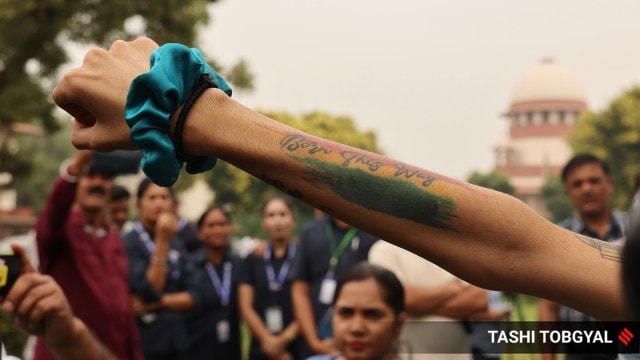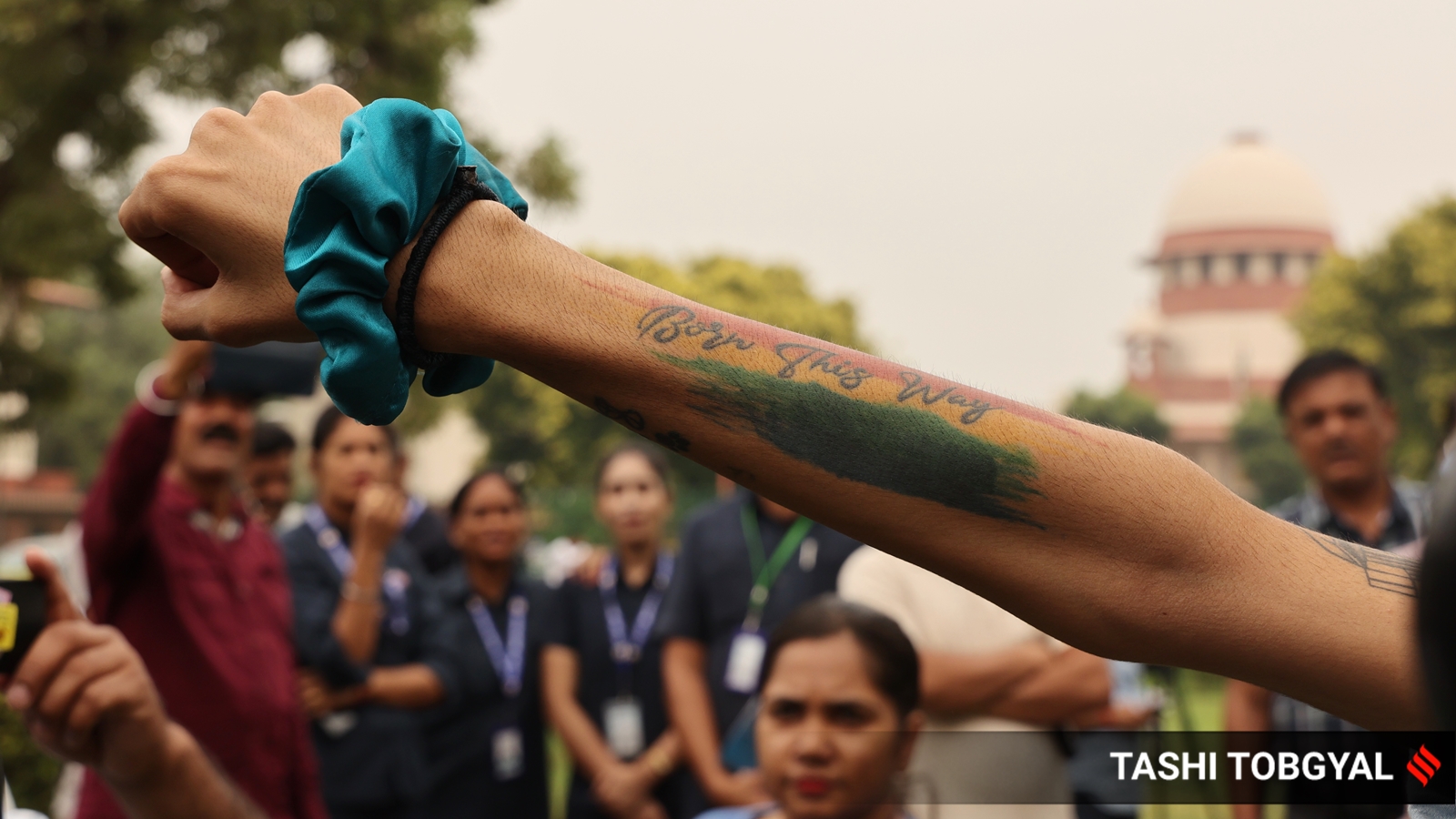
The moving finger writes, and having writ moves on. But rarely, can the finger have a chance to go back and rewrite what it’s written. On July 10, the Supreme Court will hear review petitions on the marriage equality case. The bench composition has changed on account of the retirement of Justices Shripathi Ravindra Bhat and Sanjay Kishan Kaul. In their place, Justices Sanjiv Khanna and B V Nagarathna have become a part of the Bench.
What are review petitions? Under Article 137 of the Constitution of India, the Supreme Court has the powers to review its own judgments. Such a power is important to ensure that apex courts have the room to course correct, in case they get judgments wrong. With all due respect to the Supreme Court, the marriage equality judgement was one such historical wrong that will haunt the Court.
When the Court hears a review, it is not sitting in appeal over its own judgments. The power of review is vested with the Supreme Court to correct apparent errors or grave injustices. What was the injustice in the marriage equality case or the apparent error? All judgments noted that the queer community was discriminated against, including the majority judgment. However, except for Justice Kaul, no judge struck down the Special Marriage Act. One of the first principles of law is ubi jus, ibi remedium, or “where there is a right, there is a remedy”. The Court has, time and again, said that the queer community has a right to not be discriminated against, which it found in Articles 14, 15, 19 and 21 of the Constitution. When the Court told petitioners in this case to go to Parliament, it ignored the evidence presented. Advocate Anand Grover showed in court how these issues had come up in the past five years in Parliament without any action taken. It is a settled proposition of law that when Parliament fails to act on issues of violation of fundamental rights, it is the obligation, and perhaps even the duty, of the Court to step in. But, the Supreme Court failed to grant the requisite remedy, namely, by striking down the Special Marriage Act. The Court also disallowed queer persons from adopting children. As the Udit Sood Review Petition notes, “To find that the Petitioners are enduring discrimination, but then turn them away with best wishes for the future, conforms neither with this Hon’ble Court’s Constitutional obligation towards queer Indians nor with the separation of powers contemplated in our Constitution.’
But the course correction need not come only from the Court. Certain corrections have to come from the lawyers themselves, on both sides of the aisle. For example, one of the lawyers on the petitioner’s side called transgender and non-binary persons a “theoretical” category. The Solicitor General, on the other hand, read out different genders pulled off a random website, including one where the gender changes according to a person’s mood swings. The Union of India had also called the demand for queer marriage an “urban, elitist” demand. This is a chance for lawyers on both sides to sensitise themselves on the issue that they are arguing.
The judgment led to a lot of angst within the queer community. Since then, a queer spouse has had to petition a high court to attend his partner’s funeral, since he had no rights and the natal family refused to let him attend. Another man in Bombay was jailed for illegally adopting a child and was only recently released on bail citing his HIV status and his vulnerability in jail. There are two things that might happen now: Either the bench decides to hear the petitions in open court, in which case there will be a fresh round of arguments pointing out why the judgment was wrong, or the Bench will dismiss the review petitions, leaving the petitioners to file curative petitions. It is not often that the Court gets to correct its own grave injustices. One just hopes that the Court grabs this chance, and ensures that queer persons get the truly “equal citizenship” they were promised in Navtej Singh Johar v Union of India. But we have lived to fight another day. Our lives which were typified by anxiety, fear and criminalisation can be bettered. Our horizons may be redrawn. Our lives will also be pawns in culture wars as the case comes up. It is time, nevertheless, to fight for rights and our space in this culture of heteronormativity.
Lastly, gay marriage will not stop transphobia or grant horizontal reservations, or make sure we have the freedom to choose our own families. The fight for marriage is a legal necessity, but our end goal should be liberation.
The writer is a bioethicist and a lawyer at the Supreme Court



